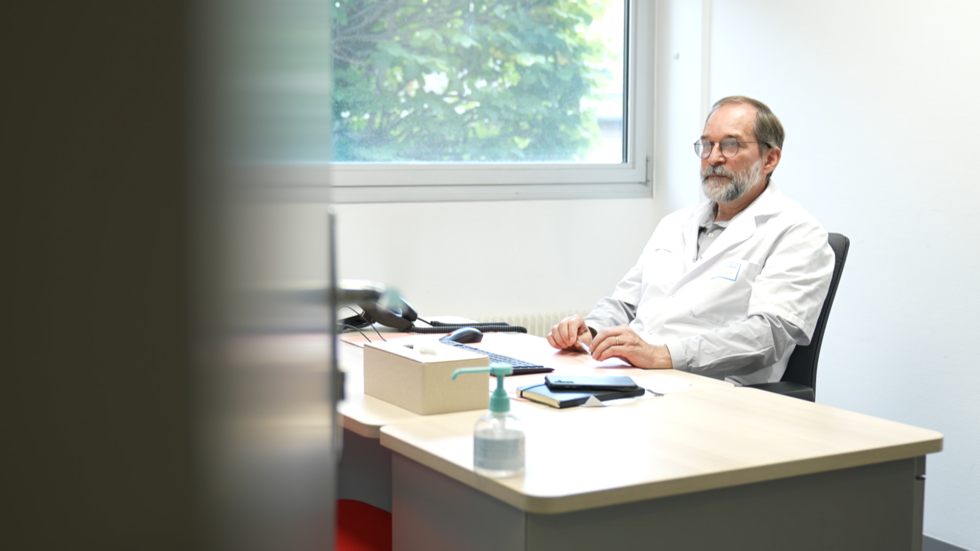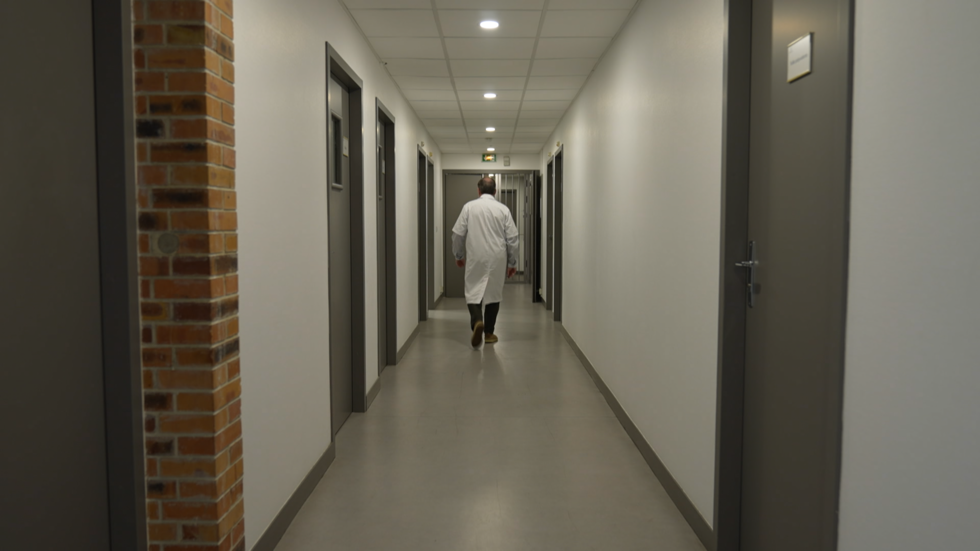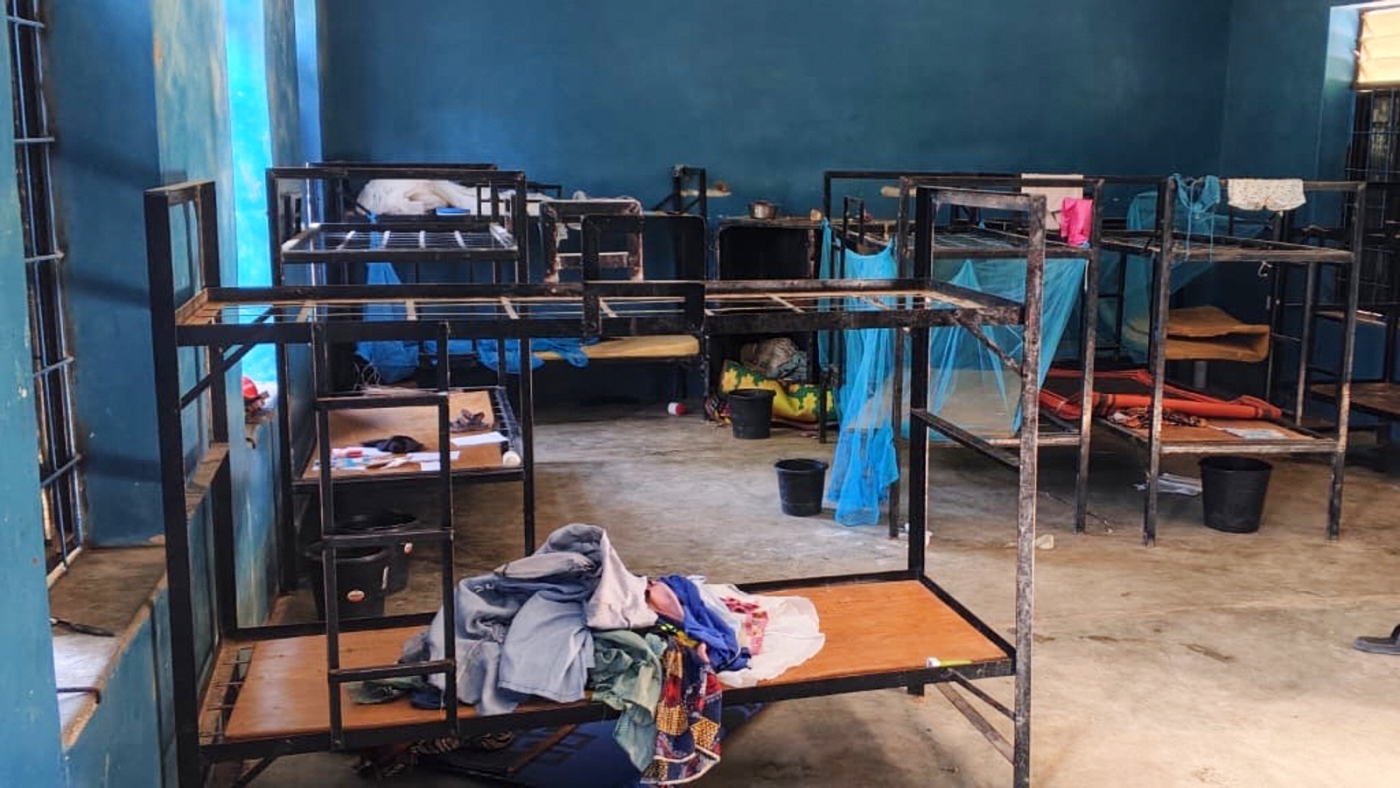"Very, very quickly, I was approached by a self-proclaimed Imam. He was more used to selling weapons and drugs, but he spoke Arabic well, knew the sacred texts of the Quran and had a certain charisma, so he styled himself as an Iman in the prison yard."
When a radical Islamist recruiter targeted Karim Mokhtari in prison, he knew all the right buttons to press.
"I was vulnerable to radical and violent indoctrination because I was suffering from an identity crisis, neglect, I craved recognition, self-esteem and confidence," says Mokhtari. "All of that creates fertile ground for proselytism of any kind, particularly the radical and violent sort."
Mokhtari had suffered severe abuse growing up in a violent household. He was 18 when he was sentenced to ten years in prison for having instigated an armed robbery.
"He kept pouring fuel on the fire that was already inside me," he says. "He gave me excuses to stay angry by telling me, 'Just look around you and you'll see that France doesn't love us.'"

The radical recruiter's playbook
This tactic is typical of a recruiter’s playbook, says Dr Guillaume Monod, a psychiatrist who began studying radicalisation in the wake of the 2015 Paris attacks.
Read moreLandmark Paris attacks trial leaves riddles unsolved, tears unnumbered
"The first thing recruiters look for are people who are fragile. They don’t go straight for people who are already convinced of their ideology, whether it be jihadist, incel, or any other. What they look for first are people who are fragile, who need psychological, emotional support, who need friends and to feel part of a group. So it's important to understand that often, it's the connection that is created first, and the ideology that comes in later."
But Mokhtari eventually found the strength to turn his back on the recruiter.
"I remember this self-proclaimed Imam came up to me with a very, very dark look, to tell me that I was now a Muslim and that my duty as a Muslim was to defend Islam. And according to him, defending Islam meant that I had to go kill the infidels wherever I found them. It was the first time in my life, I think, that I knew how to take a stand by saying ‘no’ in a determined way. It was the best decision I could have made during my entire sentence, because that is not Islam."
It was the late 1990s, and back then, says Mokhtari, "It wasn’t Daesh (Islamic State group), it was al Qaeda." And there were "zero programmes in place to prevent radicalisation. So the prison service did what it could, by transferring certain inmates to different prisons in the hope of stopping the spread of the extremist ideologies."
Wake-up call
The 2015 terrorist attacks – beginning with the Charlie Hebdo murders in January and culminating in the coordinated November 13 assaults that killed more than 100 – was a wake-up call for France.
Monod says that, before 2015, "There was a big problem because no one in France knew anything about radicalisation, especially in prisons."

Afterwards that all changed. "All sectors of society mobilised. Not only the justice system, prison service and psychiatry sectors, but also the state education sector, child protection, charitable organisations and social sciences."
He says the effort has paid off. "In just a few years, we have been able to obtain a real understanding of the phenomenon."
Read moreHow France was forced to reassess its ideas about radicalised youth
Monod, who has so far worked with around 150 prisoners suspected of having been radicalised, says his focus is on their susceptibility to extremism.
"I'm not interested in the religious question, I'm not interested in the political question. That's not my area," he explains. "My work is about the psychological mechanisms, about the psychological vulnerabilities that cause certain people, in certain cases, to find themselves indoctrinated into a sectarian and violent ideology."
From 'deradicalisation' to 'disengagement'
Today, the term 'deradicalisation' is avoided by many of those working in the field. "In France, having an opinion is not an offence," says Monod. "Today, rather than talking about ‘deradicalisation’ we talk about ‘disengagement’ from violence." That is the goal of Monod’s work, which he says is seeing positive results.
"There are some patients I knew in detention, whom I've heard news about following their release, and many have completely abandoned their violent behavior. Some remain in a fairly sectarian ideology, but what matters most is that they've abandoned their violent behaviour."

'A network of professionals'
Mokhtari has made it his life’s mission to prevent people from turning to violence and extremism through his two associations, 100Murs (100Walls) and Les Chiens de L’Ombre (Dogs of the Shadows). He speaks regularly at prisons about his experience and was among the first to earn a Radicalisation Prevention Certificate, a diploma created in 2017 by political scientist and researcher Elyamine Settoul.
The diploma – designed for people from diverse sectors including education, the police, the judiciary, prison services, social services and intelligence – has allowed for "a network of professionals to develop", Settoul says.
And they are noticing shifts in the radicalisation threat: "They’re getting younger, and it’s evolving."
'Radicalisation is the same as it always was'
Settoul discusses the case of the leader of a far-right extremist group whom he interviewed in prison – highlighting the similarities between his trajectory and those of radical Islamists – in his recent book, "Suprémaciste. Anatomie d’un parcours d’ultradroite" (Supremacist. Anatomy of a far-right extremist journey).
Read moreShould France’s incel threat be treated like terrorism?
He says the mechanisms behind radicalisation have not greatly changed in the last 10 years. "Often it’s the classic problems like bullying at school, children who feel they don't fit in, dysfunctional families. They close in on themselves," he explains.
The process is then turbo-charged by the internet, particularly social networks. "They get stuck in an algorithmic echo chamber. They radicalise among themselves. They can spend all night watching jihadist or far-right extremist videos," Settoul says.
"But the radicalisation process is the same as it always was. It starts with a problem in the real world. Only now, the virtual world is accentuating the phenomenon. It’s important to stay vigilant."











 English (US) ·
English (US) ·